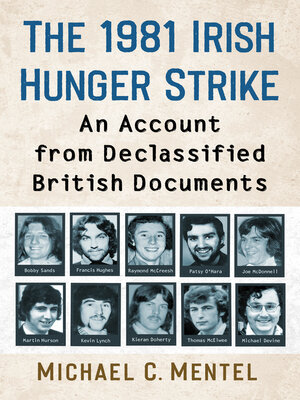The 1981 Irish Hunger Strike
ebook ∣ An Account from Declassified British Documents
By Michael C. Mentel

Sign up to save your library
With an OverDrive account, you can save your favorite libraries for at-a-glance information about availability. Find out more about OverDrive accounts.
Find this title in Libby, the library reading app by OverDrive.



Search for a digital library with this title
Title found at these libraries:
| Loading... |
The hunger strike of 1981 is regarded as one of the most tragic events in Irish history. Ten men died over a period of 217 days in the H-Blocks of Long Kesh (Maze) prison while exercising the most extreme form of civil disobedience available to them. The Troubles that gave rise to the hunger strike had roots in the centuries of socio-economic subjugation and religious persecution in Ireland. In 1971, the British government began internment without trial for persons suspected of belonging to paramilitary organizations. Eventually, the British government granted Special Category Status to these prisoners before later stripping it from the prisons by 1976, leading to a five-year prisoner protest that culminated in the 1981 hunger strike. This book critically examines declassified British government documents that detail how the government's policies led to the 1981 hunger strike, how Margaret Thatcher exacerbated the strike by refusing steps to end it, and how the hunger strike eventually led to peace in the north. Analysis also illustrates how the 1981 hunger strike, and the ten men who died on it, forced a revolutionary change in the political and governmental structure of the north and paved a road to peace that concluded with the signing of the 1998 Good Friday Agreement.






